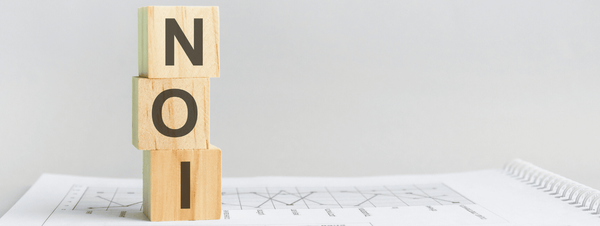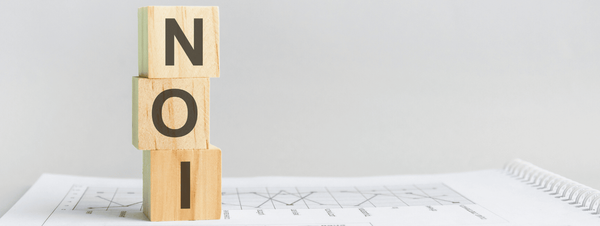Professional cleaning: landlord guide
How clean does a rental property need to be? Cleaning is one of the most hotly debated topics between landlords and tenants, and it’s not uncommon for disagreements to ensue over the subject. Whether the cleaning is due to happen before or after a tenancy, both parties often have different expectations about what constitutes a clean property. There's also often a misunderstanding over what cleaning includes and what constitutes a ‘professional clean’. Here, we’re bringing you clarity with our comprehensive guide to professional cleaning.
What is included in a professional clean?
There isn’t an exact definition of what’s included in a professional clean, whether at the start of the tenancy or the end. However, most professional companies offer guidelines about what their tenancy package will or won't include. Exact services may vary between cleaning companies, but you can expect the following duties to be included in a professional clean:
- Vacuuming and dusting of carpets, rugs and upholstery.
- A full clean and polish of windows, mirrors and glass surfaces.
- Mopping of hard floor, plus vacuuming.
- Dusting and wiping down of hard surfaces.
- Cleaning inside and out of kitchen appliances, such as fridges and cabinets.
- Thorough scrubbing of bathtub, toilet and sink.
What isn’t included?
Again, each company offers a slightly different service, but it’s not uncommon to find some types of cleaning excluded. These tend to include:
- Carpet cleaning.
- Cleaning the inside of the oven.
- Soft furnishings, such as curtains, sofas, beds and chairs.
- Outside and communal space.
While these items aren’t included in most base services, you can usually purchase them for an additional cost. Just remember: even though professional cleaning companies don’t offer these services unless you pay extra, landlords and tenants will expect things like the oven and soft furnishings to be thoroughly clean before the tenancy commences and once it has ended.
How much does it cost?
If you’re confident with your cleaning skills, there’s no reason why you can’t do the clean yourself. This would mean that you only pay for items like the cleaning products needed to make the property look spick and span. We have a comprehensive cleaning checklist that is useful for both landlords and tenants.
Of course, hiring a professional cleaner to perform the task for you is usually the better option, whether at the start or end of the tenancy. You can be certain the standard of cleaning will definitely be professional and it'll save you hours of time and hard graft. The price will vary, depending on factors like the location, property size, number of bedrooms and whether you need any extras like cleaning the inside of an oven.
For a typical one-bedroom apartment, you can expect to pay around £150, while a three-bedroom home will likely cost upwards of £300. The average tenancy cleaning cost in the UK is £310.
Do I need to have my property professionally cleaned?
The short answer is ‘no’. There’s nothing legally binding to say landlords or tenants need to clean the property professionally. This is due to a change in the Tenant Fees Act 2019 (more on that shortly), which bans landlords from requiring the tenants to pay any charges not on the list of permitted payments (including charges to third-party services).
Even though there’s no obligation to pay for a professional clean, there is an expectation the home is presented in good condition before the tenant moves in. The same goes for when they vacate the property at the end of the tenancy.
Tenants are also responsible for leaving the property in the same condition as when they moved in. Therefore, both tenants and landlords should take photos, proving the standard of cleanliness in the home.
As a landlord, it's helpful to get a written inventory of everything provided to the tenant. It should include a description of each item and its condition. Eg, if the carpets are described as 'clean throughout', the tenant would need to ensure they meet that standard when moving out. Otherwise, the landlord can deduct a portion of the deposit when the tenant vacates the property.
How clean does a rental property need to be?
This is where most disputes occur, as landlords and tenants disagree over just how clean the home should be. Ultimately, the property needs to be in the same condition when a tenant leaves as when they moved in.
Again, the use of an inventory and check-in and check-out service can help here, as it details everything about the property, including its general cleanliness. As a landlord, it’s important not to confuse cleanliness with fair wear and tear, which describes defects in the property through regular use over time.
If both the landlord and tenant agree that the property needs cleaning to a professional standard, it mitigates the chances of further issues. That means it's unlikely for disputes to occur when the tenancy ends.
Professional cleaning and the Tenant Fee Act
In 2019, the Tenant Fee Act came into place. As part of a raft of changes, landlords were no longer allowed to insert a clause in the Assured Shorthold Tenancy (AST) that could only be met by the tenant if they paid for a professional service. This new clause changed the dynamic considerably, meaning tenants can no longer be contractually obliged to pay for a professional cleaning service.
However, they still need to leave the property in the same condition in which they received it at the beginning of the tenancy. This means that if the landlord hands over a property that is cleaned to a 'professional standard', the tenants must ensure that it is just as clean at the end of the tenancy. How they achieve this is left to their discretion, so they can hire a professional cleaning service if they prefer or do the hard work themselves.
What are the landlord and tenants obligations?
As far as obligations between landlords and tenants go, it ultimately starts with the landlord providing the property in a reasonable condition and ends with the tenant returning the property in the same state. Under the Tenant Fee Act, landlords can’t include any clauses demanding that the tenants pay for professional cleaning in the AST.
However, the landlord is obliged to offer rental accommodation that is safe and inhabitable, and a thorough clean is part of that process. From the tenant’s perspective, they need to leave the property as they found it, which usually means leaving it spotless.
Failure to do so can leave everything open to interpretation, and the landlord may decide to pursue cleaning costs via the security deposit. To avoid such a scenario, both landlords and tenants should ensure the property is clean to a mutually agreed standard before and after the tenancy, with expectations communicated clearly by all involved.
What if there is a dispute over cleaning?
If a dispute arises due to the landlord believing the tenant hasn't left the property in good order, the Tenancy Deposit Scheme (TDS) reviews the case and makes a decision based on the evidence provided.
This is where photos will be required to back up claims from both landlords and tenants. The TDS will ask to see proof that the tenant neglected their cleaning responsibilities in the property and failed to clean it to a similar standard as when they moved in.
If the landlord arranges remedial cleaning at the end of a tenancy before speaking with the outgoing tenants to agree the scope of work required, or without giving them the opportunity to make their own arrangements to address the issue, then it can be very difficult to recover these costs if the tenant disputes any deposit deduction. For that reason, landlords should always make every effort to communicate with tenants over a discrepancy in the standard of cleaning before taking matters into their own hands.
This is also why we recommend leaving at least 2 or 3 working days between tenancies to ensure that there is time to address any issues with your previous tenants before new renters arrive.
Summary: it’s cleaning time
Landlords and tenants aren't legally obliged to have a property professionally cleaned, but it is expected to be clean to a reasonable minimum standard before the tenancy and left in the same condition when it ends. Essentially, it's down to both parties to agree on the scope of a professional clean and arrange an impartial check-in inspection to ensure that there's more transparency over the process. That way, the chances of disputes rising over cleaning are reduced, and both landlord and tenant can end the tenancy without any issues related to cleaning.
At Home Made, we offer a hybrid lettings solution that adds value at every stage of the rental process. With our game-changing new landlord platform, The Property Wallet, we offer London landlords exceptional tenant-find and property management services for a low monthly fee.
- Avoid expensive upfront fees and spread the cost of marketing your property with the option to pay monthly.
- Free rent collection and arrears chasing.
- Sign off and see all charges and payments in your dashboard.
- Real-time updates on marketing, viewings, and offers.
Prices start from just £50+VAT/mo for tenant-find and £60+VAT/mo for management. Alternatively, you can pay a one-off upfront fee of £1,200+VAT for our tenant-find service.
If you would like to speak with us about your property needs, contact us via our website to find out how we can help. If you're ready to get started, book your free valuation here.
Book valuationCheck out more of our landlord advice here and follow us on Twitter, Linkedin, and Instagram for regular updates on industry compliance standards, market insights, and Home Made company news.




